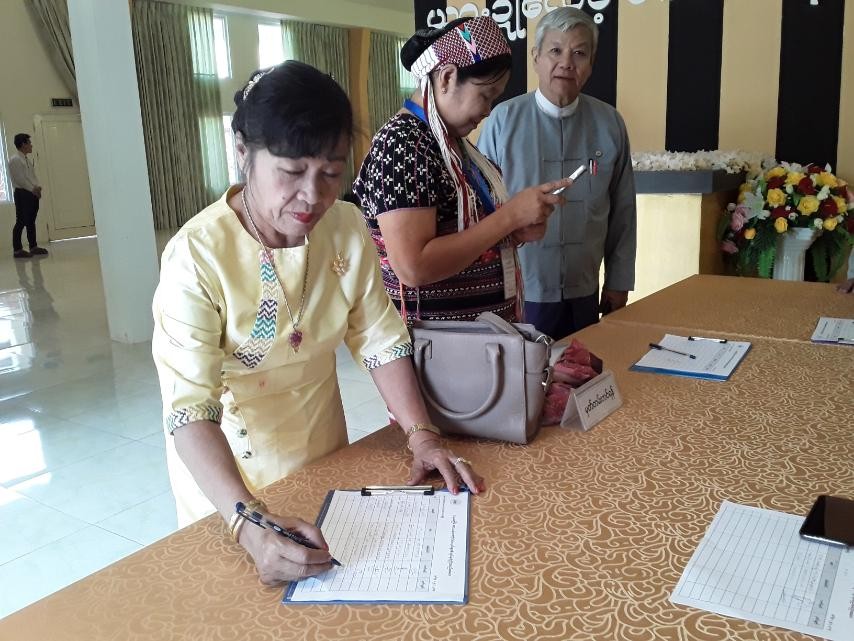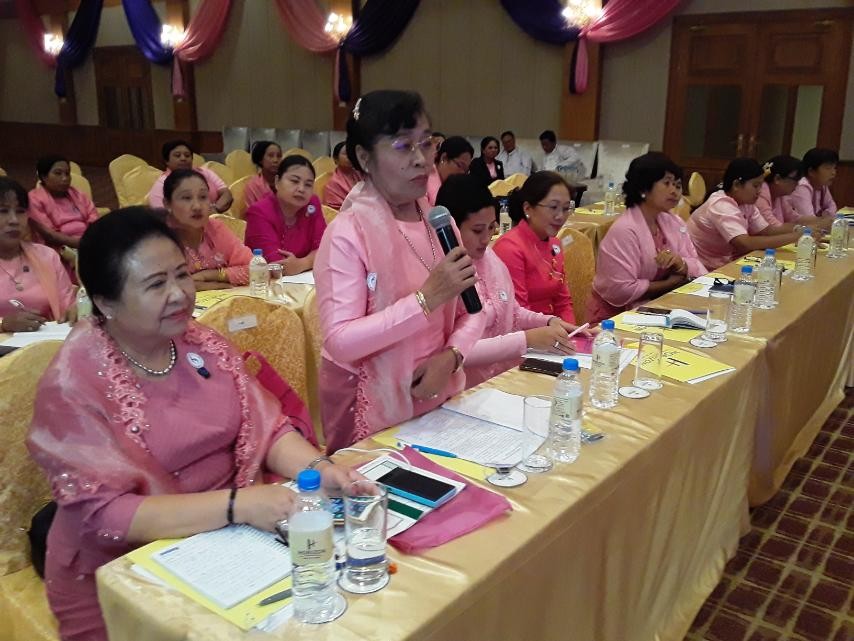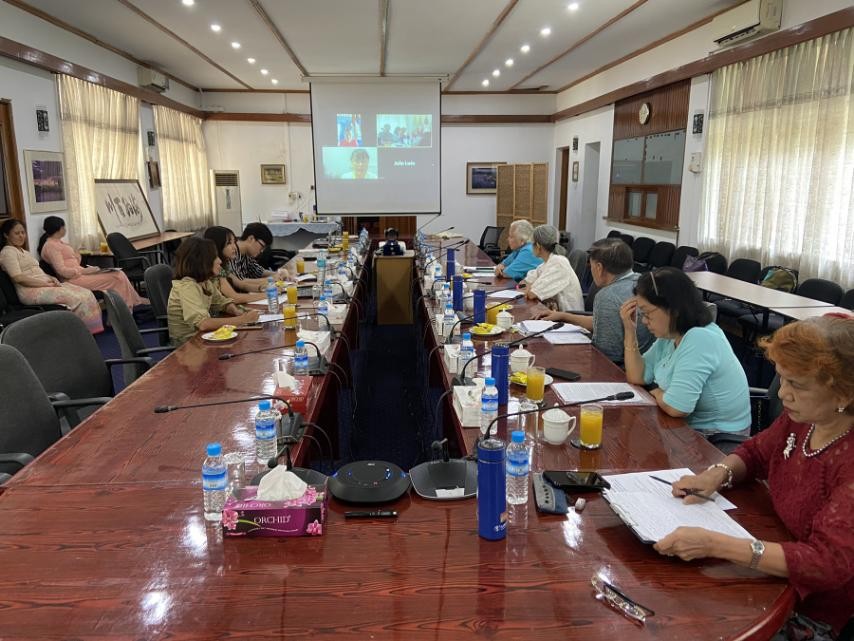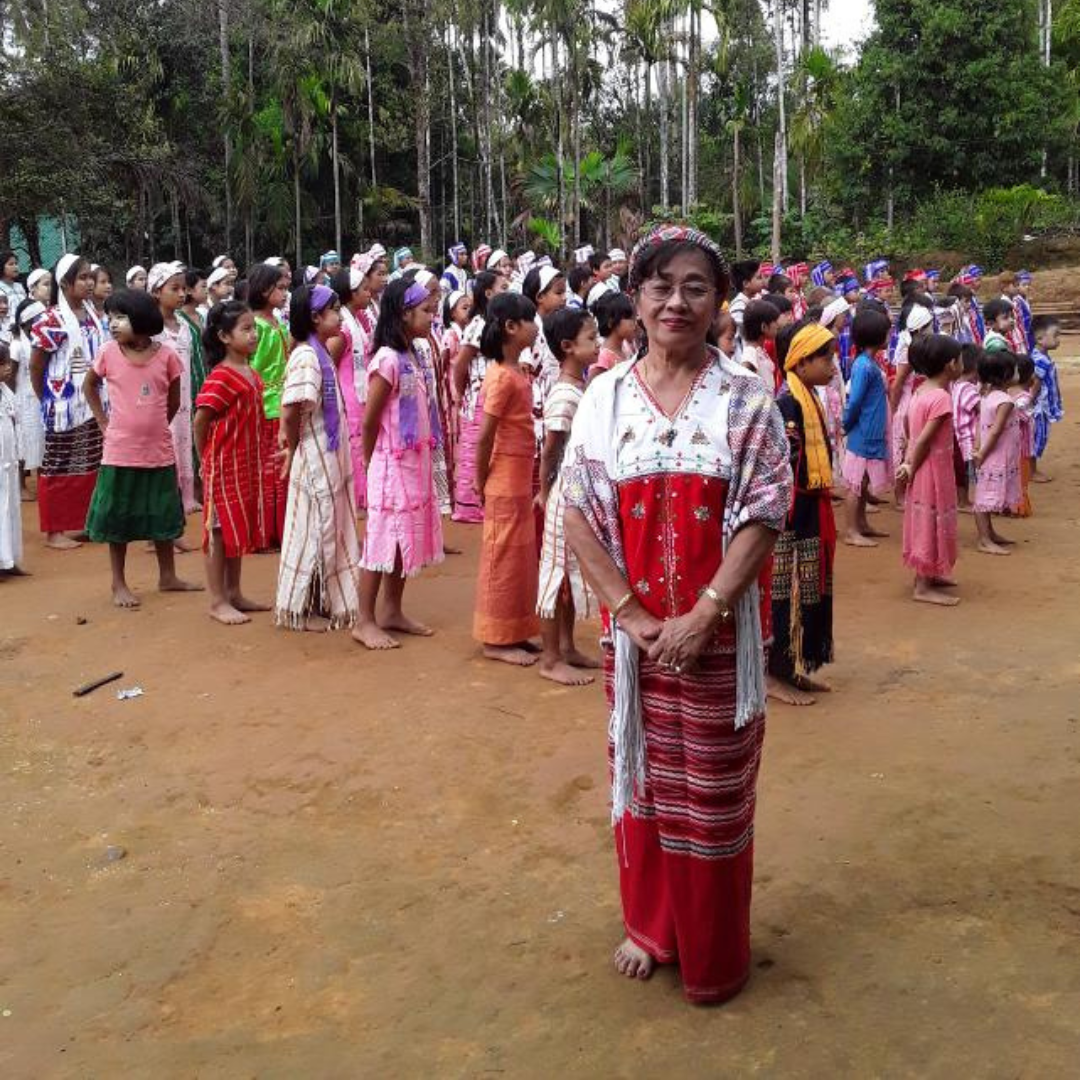myanmar - mediation, mitigation
Naw Mildred
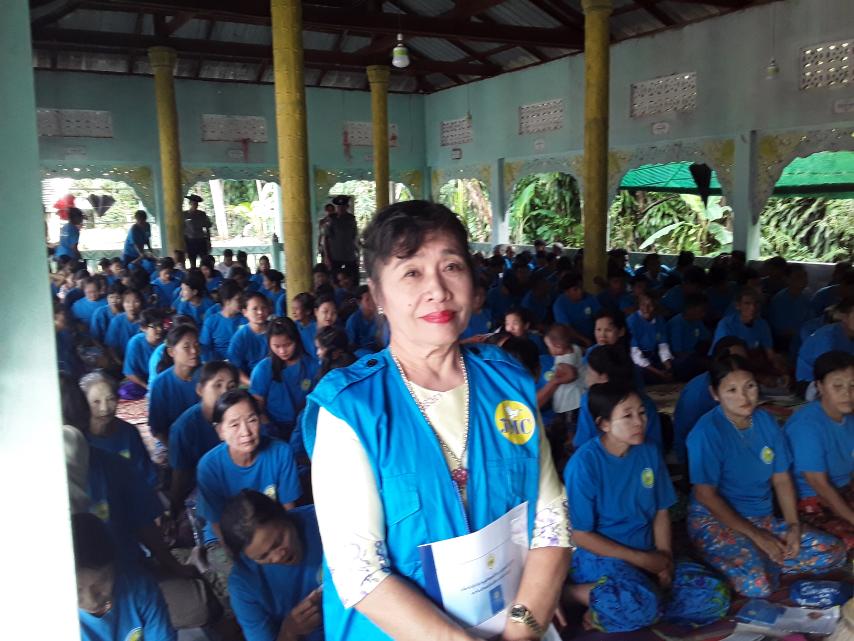
- Actor/Organisation
- Naw Mildred / Joint–Ceasefire Monitoring Committee (JMC), Women’s Affairs Federation (Dawei, Tanintharyi Region)
- Current Title/Designation
- Representative of the civil society segment
- Expertise/Focus Area
- Mediation, Mitigation
- Date of Interview/Research
- 09 May 2024
- Location of Interview
- Virtual Interview
- Diplomacy Track
- 2
Starting Point
Ms. Naw Mildred is a former school headmistress and retired from her teaching profession six years ago. She was one of the community leaders in the peace process who served as a mediator to prevent and mitigate conflicts between the Myanmar Military (Tatmadaw) and an ethnic armed organisation (EAO), specifically the Kayin National Union (KNU).
However, the prevailing situation renders her unable to fulfil her previous role. She witnessed the deteriorating security situation in Dawei City and nearby towns, including Palaw, Palauk, and Launglon townships, which have caused locals, including women and children, to flee their homes to escape the ongoing conflict between the Tatmadaw and EAOs. Children are particularly vulnerable to this situation, as the closures of schools have also left them without access to education.
Nevertheless, she continues to long for peace and stability in the region. Had she been given the opportunity, she would have preferred to continue contributing, as she did before. As she is desirous of a peaceful life for the people, especially women and children, she makes an effort to support, protect and help them from domestic violence, rape and family issues.
Peace Journey
Regarding women’s role in peacebuilding, she feels that women’s participation and their interest in this issue are low. Therefore, women remain largely excluded from peace processes. However, based on her experience, this problem is rooted in fear and a lack of opportunities to develop strong leadership skills. Therefore, she aims to increase women’s involvement in peacebuilding, adapting to the specific situation and time.
In the villages, she helped provide vocational training for women to generate income. She also assisted with resolving women’s affairs and domestic family problems. One notable case in which she served as a mediator occurred approximately five years ago. At the time, both the Tatmadaw and the KNU forces were stationed near the Htee Khee Gate and the Dawei Border Gate. The Tatmadaw had ordered the KNU to vacate the Htee Khee Gate within three days, which was not feasible to do. As a civilian representative of the Joint Monitoring Committee (JMC), she was approached by the KNU for assistance. Through her mediation, both parties were eventually able to reach an agreement.
She shares the importance of fostering a sense of safety and trust. As a member of the local JMC, she played a key role in initiating and organising meetings between the Tatmadaw and the KNU. She also encouraged villagers to participate in dialogues, peace meetings, the Kayin’s New Year celebrations, and sports events.
She was also involved in supporting young women from the Kayin village in gender-based violence cases. She mentioned one case that she assisted with. It was about two underage girls who were taken into the forest by two strangers and sexually assaulted, while the parents were away harvesting rice. In that case, despite the villagers’ efforts to identify the perpetrators, they were initially unable to do so. Then the survivors’ parents approached her for assistance, as she was a member of the Women’s Affairs Federation of Tanintharyi Region. With her support, the perpetrators were arrested and later sentenced to 11 years in prison, in accordance with the law.
In addition to her advocacy work, she has actively promoted youth empowerment in her community. She helped high school graduates from her village secure positions as local teachers and nurses, and established sewing courses for young women without access to formal education, enabling them to gain valuable skills and earn an income.
Success Stories
She believed that she had achieved meaningful success as a mediator, as she was never treated with disrespect or dismissed because of her gender. Her efforts earned the trust and respect of all parties involved. Therefore, she believes more women should be encouraged to participate in the peacebuilding process. However, significant challenges remain, including a high level of illiteracy in the region and insufficient support for women’s participation in peace processes. She emphasises the need for basic capacity-building training at the grassroots level. She suggests that the State form organisations that actively include more women, and it is necessary to persuade them to participate more in peace processes. With non-governmental organisations currently unable to operate, she stresses the importance of forming local women-led peace groups to continue this vital work.
-
Implementing AgencyAWPR Myanmar
-
Lead ResearcherMs. Khin Sabai
-
Co-Researcher/Research Assistant(s)Ms. Eaindra Khin, Ms. Htet Yadanar Win, Ms. Nwet Nwet Yi, Ms. Mya Lwin Lwin Aung
-
Date ResearchMay 2024-December 2025
